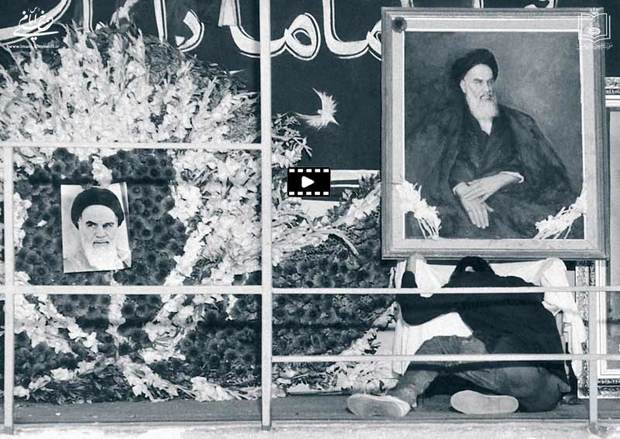- News code: 1512860
An Iraqi scholar says the Islamic Republic founded by Imam Khomeini has been successful in strengthening the might of Muslim resistance movements in different countries.
An Iraqi scholar has emphasized that Imam Khomeini did not have any powerful army or fighter jets and other sophisticated arms, but he was armed with piety and honesty to influence hearts of the people.
Sheikh Khalid al-Mulla, head of the Iraqi scholars' community, made the remark in Mashhad, Khorasan Razavi province, on Thursday night, noting that Imam Khomeini stood against all challenges by relying on the almighty God and support from people.
Participating in a ceremony on the occasion of the 32nd anniversary of the demise of Imam Khomeini at the holy Shrine of Imam Reza (the eighth Imam in Shia Islam), al-Mulla noted that the Islamic Republic of Iran turned into a safe haven for all oppressed people throughout the world.
The Islamic Republic founded by Imam Khomeini has been successful in strengthening the might of Muslim resistance movements in different countries, the Iraqi scholar said, adding that Palestinians, who were using stones in front of the Zionist aggressors, are equipped with rockets to fight back Israeli aggressions.
A few number of Iraqis, who want Iran to withdraw from Iraq, are not representing the whole Iraqi people, because they are brainwashed by certain elements, he said, noting that most of the Iraqis are grateful for supports from the Iranian leadership and people.
Ayatollah Mohammad Hassan Akhtari, Chairman of the Supreme Council of the World Assembly of the Ahl al-Bayt (AS) and Managing Director of the International Ashura Foundation, said in the ceremony that since the victory of the Islamic Republic of Iran, the Islamic front did not retreat from its positions and it is advancing in everyday life.
Grand Ayatollah Seyyed Rouhollah Mousavi Khomeini, better known as Imam Khomeini, passed away on June 3, 1989 at the age of 87.
As an anti-imperialist icon, he devoted his life to standing up to Iran's former Pahlavi monarchy, a key ally of the United States, and eventually paved the way for the regime’s downfall in the 1979 Islamic Revolution.
He spent many years in exile in Iraq, Turkey and France, from where he led a swelling grassroots movement, which ultimately put an end to millennia of monarchical rule in Iran.
He came back home on February 1, 1979 after the Shah fled the country amid angry popular demonstrations. The Pahlavi regime fully collapsed 10 days later on February 11.

